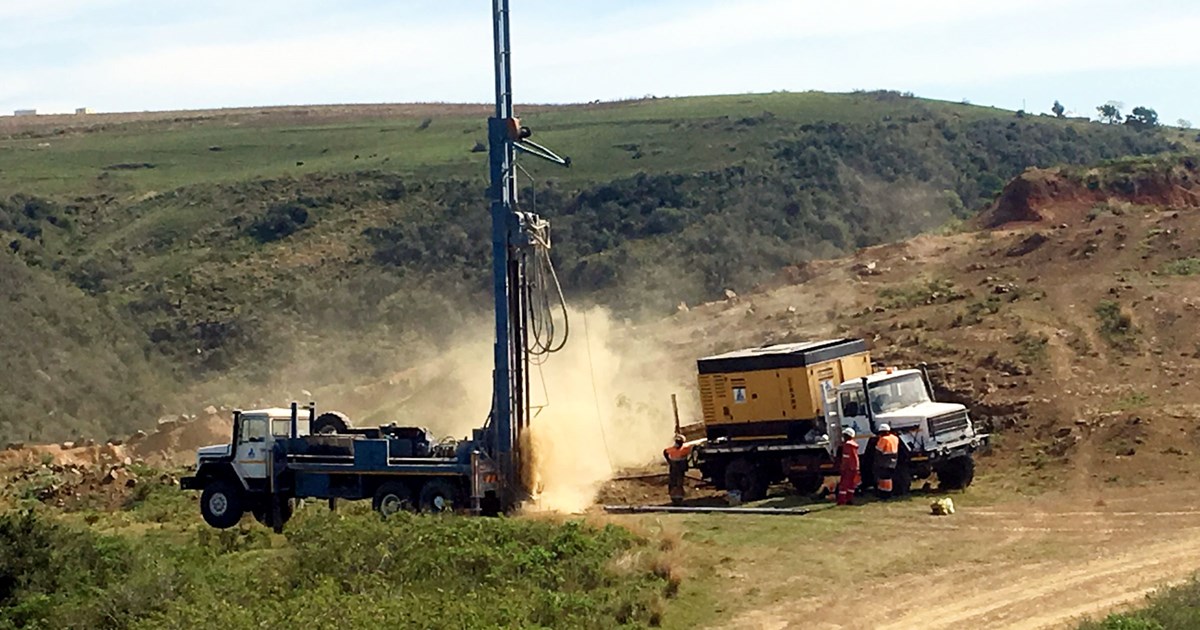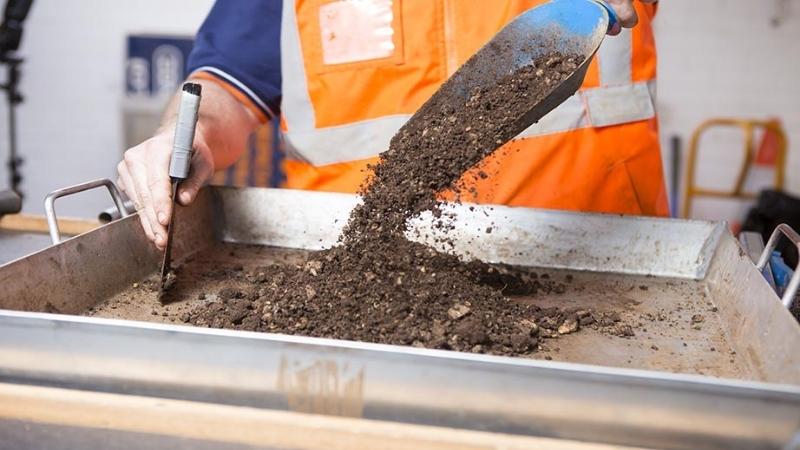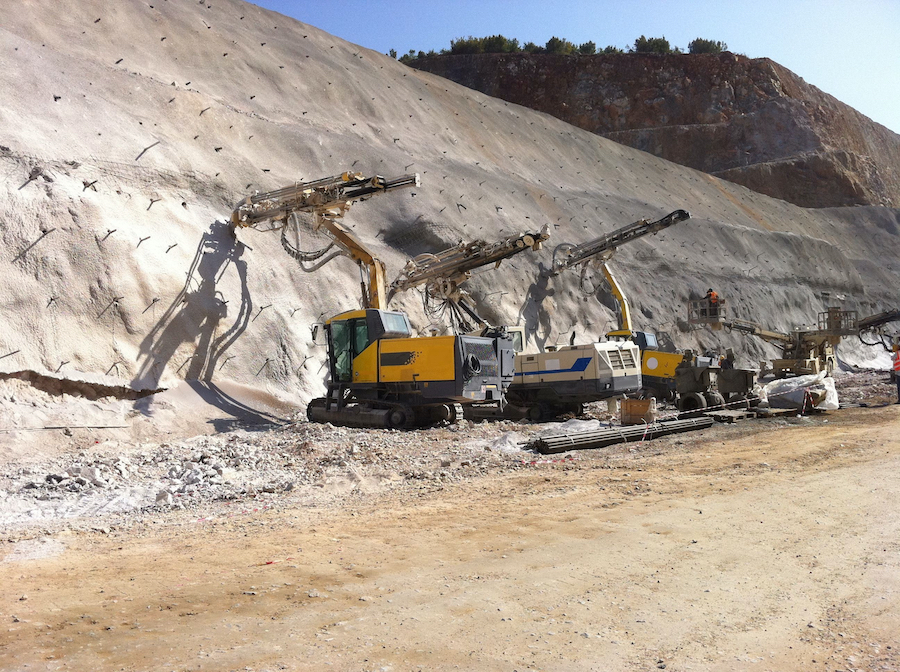Checking out the Duty of a Geotechnical Engineer Description and Obligations
Checking out the Duty of a Geotechnical Engineer Description and Obligations
Blog Article
The Importance of Geotechnical Engineering in Attending To Ecological Difficulties and Enhancing Building Security
Geotechnical engineering works as a cornerstone in the crossway of environmental stewardship and construction safety, providing critical insights right into the actions of dirt and rock under different conditions. This discipline not just addresses pushing environmental challenges such as dirt disintegration and groundwater protection but also boosts the effectiveness of facilities against all-natural dangers. By carrying out tactical site examinations and tailored mitigation procedures, geotechnical engineers play a vital duty in guarding both human lives and environmental integrity. Yet, the intricacies of these obstacles increase important inquiries regarding the future instructions of this area and its implications for sustainable development.

Function of Geotechnical Engineering
Geotechnical engineering plays a vital function in the style and building of facilities by dealing with the behavior of dirt and rock materials under different conditions. This field of design is crucial for recognizing the communication in between frameworks and the ground, which consists of establishing the load-bearing capability of soil, assessing security, and predicting prospective settlement or failing.
Geotechnical engineers are accountable for performing website examinations, which entail tasting and testing soil and rock to collect data on their physical and chemical buildings. This details is crucial for developing structures, maintaining walls, and various other earth-retaining frameworks that make certain security and longevity. Geotechnical design educates the selection of appropriate building and construction approaches and products, thus minimizing threats associated with dirt actions.
In addition, the assimilation of geotechnical engineering principles right into urban preparation and ecological administration is crucial for attending to obstacles such as ground contamination and groundwater administration. By recognizing geotechnical factors, engineers can establish lasting services that improve the strength of infrastructure against natural dangers, while also promoting environmental stewardship. Inevitably, the duty of geotechnical engineering is vital for accomplishing secure, sturdy, and ecologically aware construction practices.
Soil Erosion Mitigation
Soil disintegration positions a substantial threat to both environmental stability and facilities stability, influencing about 24 billion lots of abundant dirt shed annually worldwide. This phenomenon is aggravated by aspects such as deforestation, urbanization, and bad farming methods. Geotechnical engineering plays a crucial duty in creating reliable dirt disintegration reduction approaches that safeguard both the environment and construction projects.
One strategy requires the execution of erosion control techniques such as plants planting, which stabilizes soil via origin systems. Furthermore, the building of keeping terraces and walls can effectively reduce surface area drainage and secure susceptible areas from disintegration. Correct water drainage design is likewise important; it reduces water accumulation and routes excess overflow far from crucial structures.
In addition, geotechnical engineers employ dirt stabilization techniques, such as the application of geotextiles and eco-friendly mats, to enhance dirt cohesion and protect against deterioration - geotechnical specialist. Routine surveillance and evaluation of erosion-prone websites enable prompt interventions, ensuring long-lasting sustainability. By integrating these approaches, geotechnical engineering not just reduces the impacts of dirt disintegration however additionally contributes to the strength of facilities versus environmental obstacles, ultimately cultivating a safer and a lot more sustainable constructed atmosphere
Groundwater Defense Techniques
Groundwater works as a vital resource for alcohol consumption water, farming, and industrial processes, making its defense important for ecological sustainability and public wellness. Effective groundwater security techniques are critical in reducing contamination threats and making sure the longevity of this resource.

Routine monitoring of groundwater high quality is also necessary, allowing early discovery of contamination sources and promoting prompt remediation efforts. Using sophisticated technologies, such as geophysical surveys and remote sensing, aids in recognizing prospective threats to groundwater books.
Furthermore, public education and learning and stakeholder engagement are vital, fostering area support for groundwater defense initiatives. geotechnical companies in south africa. By incorporating regulatory procedures, technical developments, and area participation, we can produce a thorough framework that safeguards groundwater resources while advertising lasting development and building methods
Landslide Danger Administration
Landslides pose substantial risks to both human safety and facilities, making reliable risk administration methods essential. Geotechnical engineering plays a vital role in recognizing, assessing, and mitigating landslide risks. A detailed understanding of incline stability, soil technicians, and hydrology is essential for creating efficient risk administration strategies.
The very first step in landslide danger administration entails extensive site examinations, which include geological mapping and soil testing. These investigations help engineers evaluate the potential for landslides by determining important aspects such as incline angles, dirt structure, and water material. Using advanced innovations such as remote sensing and geophysical surveys can enhance the precision of these analyses.
As soon as dangers are recognized, proper mitigation steps can be executed. These may consist of design services such as keeping wall surfaces, water drainage systems, and incline stabilization techniques. Furthermore, monitoring systems need to be developed to identify indicators of ground motion and changes in water degrees, permitting for positive interventions.

Enhancing Building Safety And Security
Building sites usually offer a myriad of threats that can jeopardize employee safety and project integrity. Geotechnical engineering plays an important function in improving building and construction safety and security by giving crucial understandings right into subsurface conditions. Through comprehensive dirt and rock evaluation, geotechnical designers can determine potential risks, such as dirt instability, groundwater problems, and seismic vulnerabilities, which may endanger the safety and security of building activities.
Executing geotechnical solutions, such as correct structure design and using preserving frameworks, reduces these risks dramatically. These options not only ensure the security of the structures being constructed yet also create a safer working setting for building and construction workers. Additionally, strenuous tracking and assessment of website conditions throughout the building and construction process are crucial. Making use of advanced modern technologies like ground-penetrating radar and inclinometer systems allows real-time information collection, enabling prompt interventions when threats are discovered.
In addition, fostering a society of safety and security his comment is here through training and adherence to established security procedures additionally boosts building and construction website safety. By integrating geotechnical knowledge right into the planning and execution phases, building jobs can accomplish higher security standards, ultimately safeguarding workers and guaranteeing successful project completion.
Verdict
In final thought, geotechnical engineering offers as a crucial technique in promoting and tackling ecological challenges building safety. Via efficient soil erosion reduction, groundwater security approaches, and landslide danger monitoring, geotechnical engineers add to the development of resilient framework.
Geotechnical engineering offers as a cornerstone in the crossway of ecological stewardship and construction safety and security, providing important understandings into the habits of dirt and rock under various conditions. Geotechnical design educates the selection of proper construction approaches and materials, consequently minimizing risks connected with dirt behavior.
Geotechnical engineering plays an essential duty in creating efficient dirt disintegration reduction strategies that protect both the atmosphere and building and construction tasks.
Furthermore, geotechnical designers employ soil stabilization methods, such as the application of geotextiles and eco-friendly floor coverings, to enhance soil cohesion and prevent deterioration. With detailed dirt and rock evaluation, geotechnical engineers can recognize possible threats, such as dirt instability, groundwater problems, and seismic susceptabilities, which might endanger the safety and Check Out Your URL security of construction activities.
Report this page